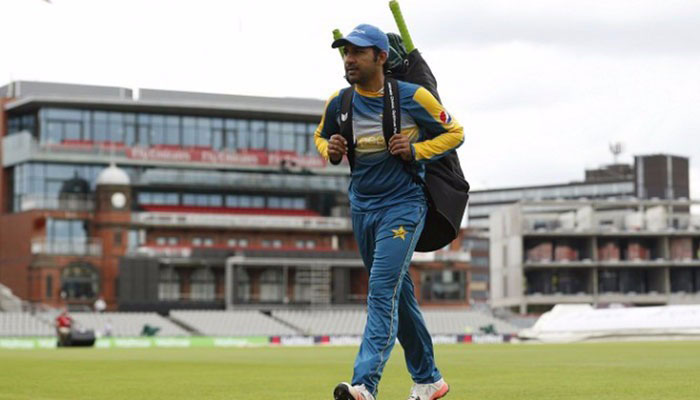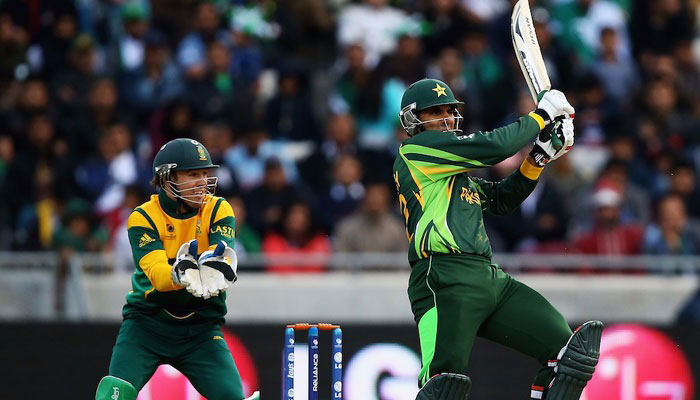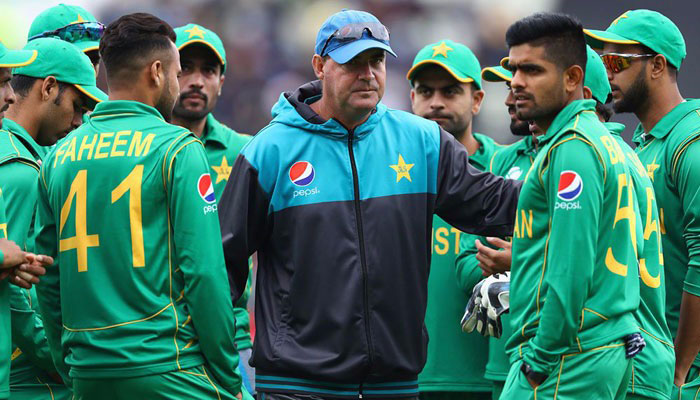June 06, 2017

The crushing 124-run defeat to India is done and dusted. No amount of ‘if only’ can change the embarrassing reality. But all’s not lost yet. It’s time for the Green Shirts to rise again from the ashes and reclaim their pride with a befitting win against South Africa.
It’s not going to be an easy task though. South Africa are the number one ranked ODI team in the world, while Pakistan, at number eight, are the lowest ranked side in the tournament. Ranking differences aside, history hasn’t favoured Pakistan either.
Pakistan have lost both of their previous Champions Trophy matches against South Africa (2006 and 2013 editions). In the World Cup encounters, Pakistan have won one and lost three against the Proteas.

Heading into Wednesday’s must-win clash, Sarfraz Ahmed’s XI would need to beat the psychological as well as clinical odds against them if they are to keep their Champions Trophy campaign, as well as hopes of billions of fans, alive.
First and foremost, the team needs to put behind the harsh memories of the match against India and get back its lost pride and confidence. The “stage fright” which had engulfed the players when taking to the field against India, as the frustrated coach Mickey Arthur said, needs to go. You cannot win any match with a negative mindset from the get-go. And the coaches have a bigger role to play here than anyone else.
The team has a young captain in Sarfraz Ahmed who has yet to test himself against all the big guns and a lot to learn. He is a fast learner, and he will learn from his mistakes. But he should be helped along the way by the coaching staff in strategising against opponents and rebuilding his team. None of the hard-taught skills are of any use if the players succumb to the nerves and fail to deliver when required.
Pakistan clearly, and spectacularly, failed to study Indian batsmen before Sunday’s game. Although Sarfraz and coach Arthur kept insisting that the team had prepared an “out of the box” plan ahead of the game, it wasn’t visible at any point.

It is absolutely crucial to know the strengths and weaknesses of the opponent players before facing them. It is a known fact that Virat Kohli is the most destructive against spinners and relatively cautious against pacers. Yet he was allowed to get comfortable on the crease when Pakistan decided to pit him up against spin.
I was reminded of what former New Zealand pacer and bowling coach Shane Bond said back in 2014, when New Zealand gave a tough time to Indian batsmen during a home series. “We studied each of them. Worked out what were the best options. The pacemen executed the plans.” That’s how you plan ahead of any game.
We remain intent on filling up our dressing room with coaches, but why doesn’t their work show? Is there any accountability for them? Does anyone even bother questioning their role in the entire setup? How can they get away with strategy and selection blunders without any repercussions? Why isn’t anyone asking these questions?
Pakistan need to have a proper game plan for their match against South Africa. The coaches, captain and players need to sit down and discuss ways of how best to play Imran Tahir’s spin and Morne Morkel’s short deliveries, and how to contain Hashim Amla and AB de Villiers.

The team needs to prepare Plan A for ideal conditions, Plan B for when Plan A fails, and Plan C for when both the other plans fail. It’s not as complicated as it sounds; strong and successful teams do exactly this. It works.
It was obvious during the India game that some senior players had outlived their place in the squad. Most of the batsmen continued to play with inexplicable caution, despite knowing that the required run rate was climbing with every ball. Even if boundaries look hard to come by, why not at least keep rotating the strike to keep the runs coming? This is perhaps the most important lesson the team should take with it into the upcoming game. It would be a shame not to manage a big score on these flat tracks; and a tragedy if the team does not apply the lessons learned the hard way against India.
“Sometimes the worst experiences are the ones where you learn the most lessons,” the All Blacks legend Richie McCaw once said. Pakistan still have time to un-do some of the damage and come back from behind to revive their race to the semifinals. Best of luck, Team Green!
The writer is a producer at Geo.tv and tweets @Mariaa_54